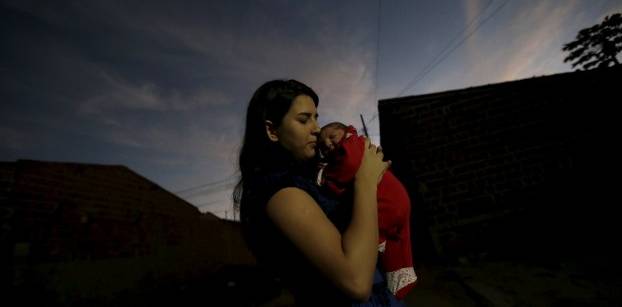Latest NEWS
- Aswat Masriya, the last word
- Roundup of Egypt's press headlines on March 15, 2017
- Roundup of Egypt's press headlines on March 14, 2017
- Former Egyptian President Hosni Mubarak to be released: lawyer
- Roundup of Egypt's press headlines on March 13, 2017
- Egypt's capital set to grow by half a million in 2017
- Egypt's wheat reserves to double with start of harvest -supply min
- Roundup of Egypt's press headlines on March 12, 2017
Dar al-Ifta says Zika-infected women may not have abortion after 120 days of pregnancy
CAIRO, Mar 14 (Aswat Masriya) – Egypt's Dar al-Ifta said on Monday that it is not permissible for a woman infected with Zika virus to abort her fetus after 120 days of pregnancy unless the pregnancy is putting her life is in danger.
Dar al-Ifta is affiliated with the Justice Ministry and is authorised to issue religious edicts or fatwas interpreting the teachings of Islam.
In a fatwa published on its website on Monday, Dar al-Ifta said that sharia (Islamic law) forbids abortion unless the continuation of the pregnancy poses a risk to the mother's life.
The statements were made in response to a question about the United Nations' call for countries to allow abortion for women infected with Zika virus, as the virus causes fetal deformation.
The Centers for Disease Control and Prevention, which is affiliated to the U.S. Department of Health, says that when a pregnant women is infected, the virus can be passed on to her fetus causing serious birth defects.
Last Feb, UN High Commissioner for Human Rights Zeid Ra’ad Al Hussein backed "women’s human rights" and said its "essential" in order to make the response to Zika's health emergency "effective".
He said that women should have access to "comprehensive and affordable quality sexual and reproductive health services and information" which includes contraception, maternal healthcare and safe abortion services to the full extent of the law.
Egypt's health ministry denied the existence of any Zika infected cases in Egypt.
The World Health Organisation (WHO) declared Zika as "public health emergency" in February.
Egypt's Health Minister Ahmed Emad al-Din Rady said in a TV interview on the state's TV later in Feb. that the Zika virus does not exist in Egypt, although the mosquito causing the virus exists in some Upper Egypt provinces, namely Minya and Assiut.
During the interview, Rady advised pregnant women against travel to central or South America, where cases of Zika have been found.
According to WHO, Zika is transmitted through a mosquito bite Aedes genus, mainly Aedes Aegypti in tropical region.
WHO said that the virus is present in Africa, the Americas, Asia and the Pacific.
People infected with the virus suffer symptoms including mild fever, skin rashes, conjunctivitis, muscle and joint pain, malaise or headache.
These symptoms last between two to seven days, WHO said.
The Egyptian Penal Code bans abortion. A doctor may perform abortion to protect a woman's health only after obtaining written approval from two other specialists.















